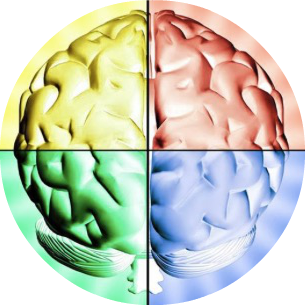5 Ways Highly Sensitive People Can Boost Their Self-Esteem

Self-esteem is not a sexy topic. Not even close. Most people don’t like talking about their self-esteem. But not me—I’m deeply passionate about it.
Self-esteem is defined as confidence in one’s own worth or abilities. Have you ever noticed how prevalent low self-esteem is among the highly sensitive population? I have. As young sensitive children, we felt different from everyone else. We had to change or hide who we really were in order to fit in with our families and society. Because of this, many highly sensitive people develop a belief that being themselves is not okay.
I have also grown to understand there is a lot we can do to change that. Once we become comfortable in our skin, our self-esteem can soar. You see, I have experienced both sides of the spectrum. I used to have low self-esteem and all the accompanying characteristics.
When I noticed that the people around me were upset or not okay in some way, I always assumed it was my fault. I felt I must have done something to make them feel that way, when in reality, they had their own issues that had nothing to do with me. I also thought I couldn’t do the things that other people could do. Going to university, getting a job, making a sports team—it didn’t matter what the opportunity was. I wouldn’t allow myself the chance to try because I felt I wasn’t as good as other people.
Then one day I asked myself, why? Why do I feel this way? This one question inspired me to study low self-esteem and strategies to increase it for 10 years.
Over time, my self-esteem blossomed, and this changed my life in ways I could have never imagined. People responded to it. Situations responded to it. Life responded to it. My relationships improved (or ended), my opportunities multiplied, and my joy and inner peace grew.
Most people don’t typically think about self-esteem, but what a role it plays in our lives. We wear low self-esteem like a garment that everybody can see. I think it’s time we pay attention to it. So let’s start now.
The 5 Quickest Ways to Recognize Your Worth
This does take practice, but once you implement these strategies, you will instantly begin to notice changes in your life:
1. Accept thoughts, emotions, and sensations as they are. Do not judge them. They are neutral and do not define who you are. They are fleeting in nature and can be changed. They rise up within us and can be released through the body and mind. For example, experiencing pain in your body does not mean you are weak. It is merely a sensation that you don’t have to give meaning to. Or thinking, “I wish I was more like ___” does not mean you are not good enough. It is just a thought, and you can practice observing your thoughts and then letting them go.
2. Eliminate should from your vocabulary. Should comes from a place of judgement. Examine your beliefs, especially those that include the word should. Question them. What happens when you turn your should’s into could’s? Does it open up other options or encourage less judgement? For example, “I should be doing more” is a thought that encourages guilt. “I could be doing more” encourages us to ponder the various things we could do, without judgement. “I could” also illustrates that there are many options for us, and we don’t have to adhere to one path.
3. Do not rely on other people to give you your sense of worth. They will inevitably disappoint. We have to internalize our power and make ourselves the only wielder of it. No label, position, or relationship can give us worth. Those are external things. We have to ensure that if something or someone is removed from our lives, our esteem can remain intact.
4. Forgive. We need to forgive ourselves for our past wrongdoings. Shame, regret, and guilt sabotage our self-esteem and worth. We often find it easier to forgive others, but we must apply this compassion to ourselves as well.
5. Take stock of your talents. Everybody has a gift or calling in this world. In fact, each of us has many different abilities that help others. We must identify these. If you’re unsure of what these abilities are, start small. What things are you good at? What do you enjoy? In what ways do you make other people’s lives better? It could be something that seems “little.” Maybe you’re the person in your friend group who is always willing to listen with an understanding ear. Or maybe you have a talent for gardening, writing, making people laugh, or whatever. Celebrate these, because they are the very things that will make you feel worthy. You may even want to write these on a notecard and tape it to your bathroom mirror where you’ll see it every day.
 What’s your personality type? Knowing your personality can help you leverage your natural strengths. Take the free personality test from our partner Personality Hacker.
What’s your personality type? Knowing your personality can help you leverage your natural strengths. Take the free personality test from our partner Personality Hacker.
These five strategies are simple, however, following them will take mindfulness and perseverance. I assure you, all the effort will be worth it when you start to live with inner calm and contentment on a daily basis. This new found sense of self-worth will show up in your relationships and career.
You may even attract some new people and new opportunities. Remember, like attracts like. A healthy and secure individual will attract other healthy and confident individuals.
However, let me give you a word of warning. People in your life who have low self-esteem will begin to take notice. They may become threatened and uncomfortable with your progress toward self-acceptance. It’s important that you don’t let this bring you down. Be mindful of people who are not supportive or think you are becoming full of yourself.
There is a big difference between arrogance and healthy self-esteem. Arrogance happens when we think and behave in a way that makes us feel superior to someone else. But when we act with healthy self-esteem, we internalize our knowledge of our own worth, and we are comfortable with who we are regardless of outside circumstances. You can be a shining example to them by revealing what healthy self-esteem looks like. They’ll see the positive effects it has in all areas of your life.
Remember, high self-esteem means being comfortable with who we are, quirks and faults included. It recognizes our abilities and strengths, and knows the value and worth they provide in this world. It is very common to experience backlash from others when we make big strides in our personal growth, especially in co-dependent relationships. A co-dependent relationship is when you are dependent on approval from someone else for your self-worth and identity. We must be prepared to cut loose the people who do not support us in emotional growth.
If it’s not appropriate to end the relationship, we can hold awareness of our personal issues versus theirs. Some people may in fact be supportive and encouraging, and use your growth as inspiration for their own. These are the people you should keep close!
Did you enjoy this article? Sign up for our newsletters to get more stories like this. ![]()
Read this: 21 Undeniable Signs That You’re an Introvert
